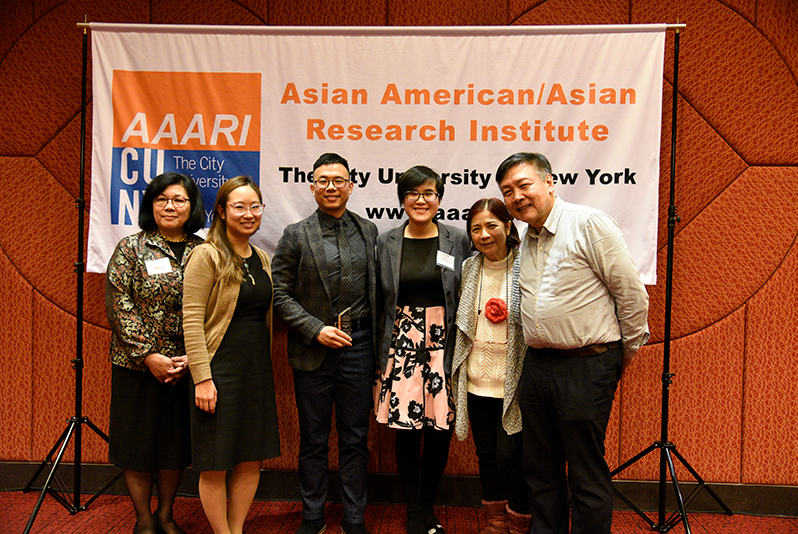
With the rise of Anti-Asian violence and pandemic-related hate crimes, the Asian and Asian American Research Institute (AAARI) at CUNY released their statement calling for the university to address their systemic neglect against Asian Americans. AAARI demands CUNY implement Asian American Studies university-wide, include Asian Americans in discussions of race-based discrimination, have more Asian American leaders, and overall, uplift the community’s voices.
“It’s imperative to us that something like an institution such as the City University of New York engage in educating people so we can create new generations of leaders that have an understanding of all of us in the country,” Joyce Moy, Executive Director of AAARI, told the Vanguard.
Anti-Asian violence has increased by 1,900 percent since 2019 according to the NYPD. Over the past year, hate crimes against Asian Americans rose 150 percent as reported by Voice of America. Last week, six Asian women were shot in Atlanta, prompting Chancellor Matos Rodríguez and college presidents to release statements acknowledging the attacks and rise of Anti-Asian sentiment. At BC, administrators have pledged their support to the Asian American community.
“Brooklyn College is driven by the power of diversity that it enjoys, and we will do whatever we can to support our Asian-American community at this time, including open dialogues so we can become part of the solution,” wrote Anthony Brown, BC’s Chief Diversity Officer, to the Vanguard.
Despite being published the day after the shooting, AAARI’s statement was weeks in the making, after a Filipino American named Noel Quintana had his face slashed with a box cutter on the L train. At the outset of these hate crimes, Asian American networks were often the only ones sharing these violent acts.
“It was horrifying, and we tried to amplify it, but no one was listening. No one was listening,” said Yung-Yi Diana Pan, BC Sociology professor and AAARI board member. “I wasn’t surprised, but I was very sad.”
AAARI initially intended to emphasize in their address that the hostility against Asian Americans is anything but new.
“These kinds of things have happened throughout history, but to blame the failure of this past administration to do anything to protect its people on the Asians or China is completely unacceptable,” said Moy, referring to former President Trump’s response to the pandemic. Since the pandemic began, Trump has called COVID-19 the “China” virus, which Moy and her AAARI colleagues consider a diversion that pivoted the blame to the Asian community.
“I think the hate has been there. What Trump did was open the flood gates to allow people to scapegoat Asians,” said Moy.
As a fourth-generation Asian American, with her father and grandfather unable to gain citizenship under the Chinese Exclusion Act, Moy finds today’s systemic racism against Asian Americans an example of history repeating itself.
“Often, our students are baffled by what’s happening to them,” said Moy. “Partly because they may not have an understanding of the historical context of these kinds of things.”
To AAARI’s leaders, the recent Atlanta shootings were unsettling but unsurprising. In demanding for Asian American Studies to be implemented university-wide, AAARI aims to make known their community’s history.
“How would we understand this history if we don’t have these classes,” said Pan. When she first arrived to BC, Pan was surprised by the absence of Asian American Studies. There is an Asian Studies minor at BC “on the books,” but it does not focus on life in America, nor are there any enrollees.
“I would bet you anything that students who’ve taken Asian American Studies at any institution of higher education across the US, were not surprised that what happened at Georgia happened,” said Pan.
Two years ago, in an effort to implement the program at BC, Pan created an Asian American Studies Faculty working group. Members believed that not only would the program provide an opportunity for BC’s 20.61% Asian American student body to learn about their heritage, but also provide the rest of the community an opportunity to develop their critical thinking.
“If you study American culture, society, literature, and history, you can’t help but realize how crucial Asian American studies is to our understanding of the United States,” said Joseph Entin, a BC Professor and member of the working group. By establishing Asian American Studies at BC, Entin believes that the program can provide “institutional visibility.”
“It signifies to the community, both inside and outside the college, ‘This area of study is important,’” said Entin. “So without having a program, the college is not sending that message to the extent that it could.”
Across CUNY campuses, the program has faced push back from administrators, who have claimed concerns of low enrollment. But to AAARI, the growing Asian student body population at CUNY says otherwise.
“(…)To say that they’ll be no interest is disingenuous. It’s a simple question of ignoring the Asian American community and seeing us as invisible,” said Moy.

avail. / Yung-Yi Diana Pan
As AAARI continues to push for CUNY to end its systemic neglect of Asian Americans, they aim to bring awareness of the racism that their community faces. In doing so, they call onto the university to acknowledge Asian American voices during this peak of Anti-Asian hate.
“It’s really about supporting our Asian American neighbors,” said Pan. “It’s really about recognizing and listening when they’re telling you these things are happening and not discounting it.”
